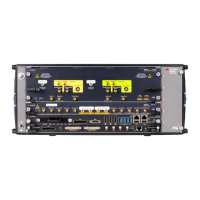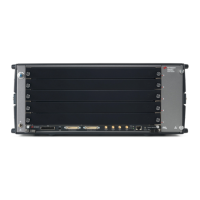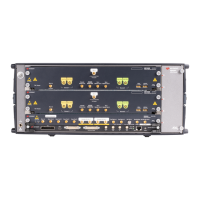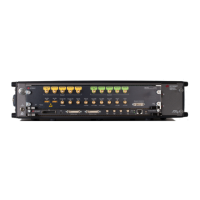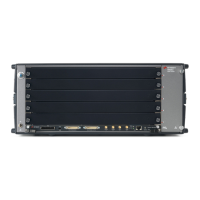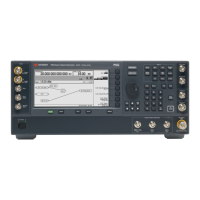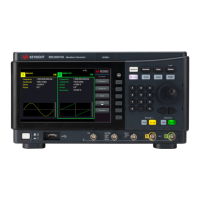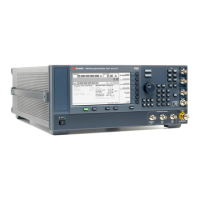88
Chapter 4 Calibration Procedures
+10 dB Range Flatness Adjustments
4
* Constants are stored after completing this setup.
3 Using the numeric keypad, adjust the displayed amplitude at each setup
to match the measured amplitude (in dBm). Then select ENTER VALUE.
Note In order to get dBm you must use the numeric keypad (not the knob) to
enter the number, and then select “dBm”.
4 After performing setup 62:
a. If your calibration procedures require you to verify the adjustment
just made, exit the calibration menu and perform “+10 dB Range
Flatness Verification”, on page 67.
b. If you are making all the adjustments and then verifying the
instrument’s performance, continue with the next procedure in
this chapter.
Nominal Signal
Setup Frequency Amplitude
54* 100 kHz 0.9 Vrms 12 dBm Flatness for 10 dB, Elliptical Filter
55* 200 kHz 0.9 Vrms 12 dBm Flatness for 10 dB, Elliptical Filter
56* 500 kHz 0.9 Vrms 12 dBm Flatness for 10 dB, Elliptical Filter
57* 1.5 MHz 0.9 Vrms 12 dBm Flatness for 10 dB, Elliptical Filter
58* 3.0 MHz 0.9 Vrms 12 dBm Flatness for 10 dB, Elliptical Filter
59 4.0 MHz 0.9 Vrms 12 dBm Flatness for 10 dB, Elliptical Filter
60* 6.0 MHz 0.9 Vrms 12 dBm Flatness for 10 dB, Elliptical Filter
61* 8.0 MHz 0.9 Vrms 12 dBm Flatness for 10 dB, Elliptical Filter
62* 9.9 MHz 0.9 Vrms 12 dBm Flatness for 10 dB, Elliptical Filter
